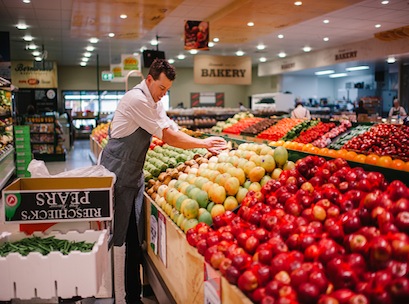 The competition watchdog is committed to ensuring the new Grocery Code of Conduct succeeds, despite concerns surrounding the implementation of the code by major retailers.
The competition watchdog is committed to ensuring the new Grocery Code of Conduct succeeds, despite concerns surrounding the implementation of the code by major retailers.
Addressing an industry forum hosted by the Australian Food and Grocery Council (AFGC) in Canberra, ACCC chairman, Rod Sims, said it was unfortunate that some of “the major retailers haven’t got off to a great start in implementing the code.”
Coles, Woolworths, Aldi, and Sydney-based retailer, About Life, have signed up to the code, which came into effect in March 2015.
The ACCC raised concerns that some retailers, particularly Aldi and Woolworths, were presenting new supply agreements in a way that might give the impression that suppliers are not able to negotiate the terms of the agreement.
Aldi and Woolworths responded saying they were strong supporters of the code and were working to implement it successfully.
“We have written to these retailers expressing our concerns. This action, which we made public, as some suppliers urged us to do, was not a signal that the code faces great difficulties; it was, instead, a signal that we will do what we can to ensure the code succeeds,” Sims said.
“Ensuring suppliers are aware of their rights is crucial to the success of the code. Our public action was designed to help with this.”
Sims said the ACCC is confident the code can succeed in redressing the imbalance in bargaining power that often exists between suppliers and larger grocery retailers. It prohibits certain types of unfair conduct, and by requires retailers to deal with suppliers in good faith at all times.
Sims welcomed the approach of the AFGC which has put more than 1000 people from over 80 companies through training sessions on the code.
Sims discussed proposed changes to the country of origin labelling regime and the role of regulators.
“The proposed new system represents major change; it would reshape the obligations of traders, requiring most food to display the percentage of local content in addition to stating a country of origin,” he said.
“The government’s proposal also transfers roles traditionally undertaken by food regulators to the ACCC and state and territory Australian Consumer Law regulators.”
The ACCC plans to increase its focus on the agricultural sector, which includes establishing a dedicated Agricultural Enforcement and Engagement Unit and a new Agriculture Consultative Committee. The government will also shortly appoint an agriculture commissioner.
“We are planning to enhance our understanding of the competitiveness of agricultural supply chains through market studies…assist the agricultural sector deal with market concentration and fair trading issues…[and] identify key supply chain issues across the agricultural sector for enforcement focus, investigation and prosecution,” Sims said.
Want more Inside Retail? Subscribe to Inside Retail Weekly now and get our premium print publication delivered to your door every week.





